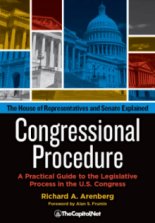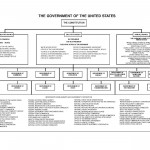Veto (CongressionalGlossary.com)
From the Congressional Glossary – Including Legislative and Budget Terms Veto A veto is the disapproval by the president of a bill or joint resolution passed by Congress (other than a joint resolution proposing a constitutional amendment). After both chambers of Congress have passed a bill, it is enrolled, then is sent to the president … Read more




